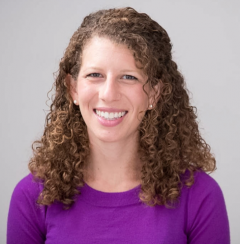
Leslie Abrahams is the Director of Energy Systems Analyses at Clean Air Task Force (CATF). Her work centers on assessing and managing the risk and feasibility of a zero-carbon energy transition. Prior to joining CATF, Leslie worked as a research staff member at the Science and Technology Policy Institute where she worked with the White House Office of Science and Technology Policy to develop inter-agency strategies to advance R&D related to energy, environment, and natural hazard resilience. Leslie has a joint PhD in engineering and public policy and civil and environmental engineering from Carnegie Mellon University.
Summary
Deep decarbonization planning to date has been dominated by least-cost optimization models that identify a mathematically desirable solution. While economic impact is an important consideration, this approach is problematic because it leads to over confidence in a single solution by decision makers that fails to take into account real world socio-political implementation challenges. As we translate model outputs into federal, state, and local decarbonization plans, it is critical to do so in a way that accounts for and works to mitigate potential implementation risks by considering tradeoffs between different stakeholder values, such as land conservation, equity, and public health implications. This seminar highlighted land use limitations of decarbonization pathways in California as a case study to explore the the physical implications of the least-cost optimization solution. Additionally, explored how other socio-political issues, including equity and public opposition, could also be in conflict with the identified least-cost solution and highlight potential new approaches to incorporate these multiple attributes into deep decarbonization modeling.